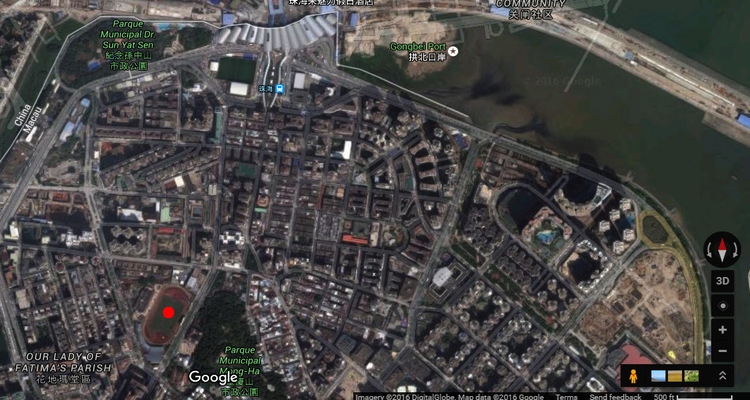The Macau Gaming Inspection and Coordination Bureau (DICJ) has finished analyzing and have responded to a report they commissioned on greyhound racing in the city and have given Macau Canidrome two years to move or close completely. The study, which has not been made public, was done by the Institute for the Study of Commercial Gaming at the University of Macau by DICJ request, while pressures mounted on the facility from multiple quarters.
Today, local media repeat sections of a government press release on the matter that speak of the Canidrome’s historic ability or inability to contribute to a diversification of the city’s gaming industry and its contribution in helping to position Macau as a world center of tourism and leisure – something that has been central to the government’s plans since at least 2007 when Edmund Ho, chief Executive of the Macau SAR spoke in similar terms in his “Macau quality of life report Volume 1”.
The press release also mentioned social expectations, which may refer to an evolving mindset among the public about animal sports in general and dog racing in particular, but that aspect was not expanded upon.
Moving the track is not a new idea. In March last year, it was suggested that the city’s dog and horse racing tracks be amalgamated. At least one Assembly member at the time suggested that community facilities be built on the site of the current Macau Yat Yuen Canidrome. The race track is located in a densely populated area less than 700 meters from the mainland border crossing station.
At that time, Angela Leong, managing director and deputy president of the Canidrome spoke of the historical importance of the venue. Executive committee president Ng Chi Sing, likened its legacy to that of other grand SJM landmarks saying, “The historical value of the Canidrome resembles that of the Lisboa Hotel. It’s part of all Macau people’s memory. We would like the government to consider its tourism value before taking any decision,” said the director as reported by Macau Business Daily. “Even though its contribution to Macau’s gaming revenues is insignificant it helps to diversify the gaming culture here in Macau. “
The existing concession extension is set to expire at the end of the year. It’s currently unclear whether the company will seek a renewal of the license. The track’s racing profits have fallen annually over the last five years, posting up MOP103.3 million (US$12.9 million) in 2011 and only MOP4.8 million (US$600,600) in 2015.


